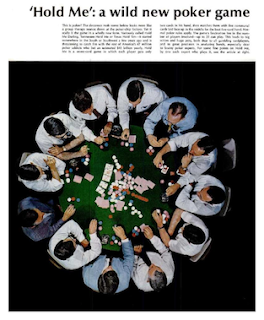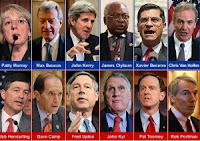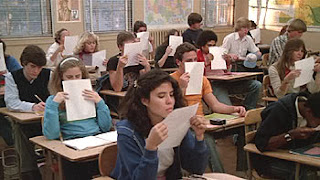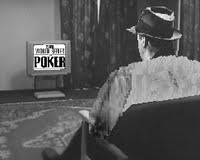Life Magazine Tells of “‘Hold Me’: a wild new poker game” in 1968
 When one looks at the relatively short history of Texas hold’em, the publication of the August 16, 1968 issue of Life magazine represents a fairly significant moment.
When one looks at the relatively short history of Texas hold’em, the publication of the August 16, 1968 issue of Life magazine represents a fairly significant moment.
Just so happens then-presidential candidate Richard Nixon, considered by many to have been the most skilled poker player among all the U.S. presidents, was on the cover that week along with his wife, Pat, and Spiro and Judy Agnew. There is nothing about Nixon’s poker playing in the issue, though, as that part of his biography -- including how he’d actually funded his first Congressional campaign in 1946 with poker winnings earned while in the Navy during WWII -- was hardly being highlighted as part of his story.
Rather, it’s a short article within by A.D. Livingston titled “ ‘Hold Me’: a wild new poker game and how to tame it” that marks an important moment in hold’em’s history.
“This is poker?” begins the introduction to Livingston’s piece, referring incredulously to a nearby photo (see below). “The decorous mob scene below looks more like a group therapy seance down at the poker-chip factory. Yet it really is the game in a wholly new form.”
As will Livingston, the intro refers to the game by several names, including “Hold Me Darling,” “Tennessee Hold Me,” and “Texas Hold ‘Em.” Livingston’s piece is interesting because it speaks of the game as a relatively new phenomenon, addressing Life’s mainstream audience as mostly consisting of readers who have never heard of hold’em.
“I believe the game is a major event in the history of poker,” asserts Livingston, “and I predict it will replace stud for the rest of the century.”
 Livingston’s piece begins with him describing a hand he played while trying to learn the game. Preflop betting caused him to become timid and fold
Livingston’s piece begins with him describing a hand he played while trying to learn the game. Preflop betting caused him to become timid and fold 
 to a professional player’s pocket queens. He admits he didn’t know the odds at the time, and a later session of trying to work them out at home leads him to conclude “it was really a mathematical toss-up.”
to a professional player’s pocket queens. He admits he didn’t know the odds at the time, and a later session of trying to work them out at home leads him to conclude “it was really a mathematical toss-up.”
Livingston had to do such work himself because none of his poker books included any mention of the game.
“None of my books covered Hold Me or any game like it,” he says. “Nowhere could I find figures on the odds.”
The rest of his short piece spends some time speculating about why hold’em (in his view) is about to take over as the most popular poker variant -- more action (than stud or draw) is the big reason -- then concludes with a discussion of another hand involving the pro to whom he’d folded before.
In that hand, a huge three-way pot develops in which the pro somehow manages to fold pocket sevens on the river with the board showing 4-6-7-6-5, having correctly surmised one of his opponents had quad sixes. The analysis is a little specious, but we’re told the pro was able to use both his positional advantage and a knowledge of his opponent to surmise he was beaten. Meanwhile, the third player -- whom Livingston calls a “monkey” -- calls off his stack with a straight.
The piece ends with Livingston describing how he’d contacted a friend in Colorado to see if he had heard of this new game called “Hold Me Darling.” “‘Never heard of it,’” his friend says, adding “‘but a new game has really caught on. High Hold ’Em. Each player gets two cards down....’”
It’s the same game, it turns out, being played with a different name.
I take Livingston’s piece -- which is available online, if you're curious -- as strong evidence that hold’em’s history really only begins around the 1950s or thereabouts, not earlier in the century as some have claimed. I brought this matter up back in the spring in a post titled “Hold’em’s History Makes a Good Mystery.”
While the game was certainly around for some time prior to 1968, it’s having different names in different places suggests that while it was gaining in popularity, the game was -- as Livingston seems to assume -- still quite new to most. Its absence from poker books (most of which would have been books of rules, not strategy texts) also suggests a later start date -- say mid-century -- for hold’em.
All of which makes me appreciate even more Livingston’s prediction that hold’em was going to become the game of the late 20th century.
Nice call, sir!
Labels: *the rumble, A.D. Livingston, hold'em, Life Magazine, Richard Nixon






















 . A middle position player limped, one of those passive sorts who limped in a lot before the flop then called a lot after. It folded all of the way around to me and I checked. The flop came
. A middle position player limped, one of those passive sorts who limped in a lot before the flop then called a lot after. It folded all of the way around to me and I checked. The flop came 

 , giving me bottom two.
, giving me bottom two.
 , and again I bet, this time 80 cents (slightly less than the pot). Again my opponent called.
, and again I bet, this time 80 cents (slightly less than the pot). Again my opponent called.
 . I checked, and my opponent promptly bet $1.27. On Hero Poker there are buttons to bet 1/2, 2/3, or full pot, and here my opponent had clicked the 1/2 pot button. (There are “2x,” “4x,” and “8x” buttons, too, in fact.)
. I checked, and my opponent promptly bet $1.27. On Hero Poker there are buttons to bet 1/2, 2/3, or full pot, and here my opponent had clicked the 1/2 pot button. (There are “2x,” “4x,” and “8x” buttons, too, in fact.)
 for the rivered straight.
for the rivered straight.

 . A king flopped, actually, but an ace came on the turn and I was forced to rebuy.
. A king flopped, actually, but an ace came on the turn and I was forced to rebuy.

























